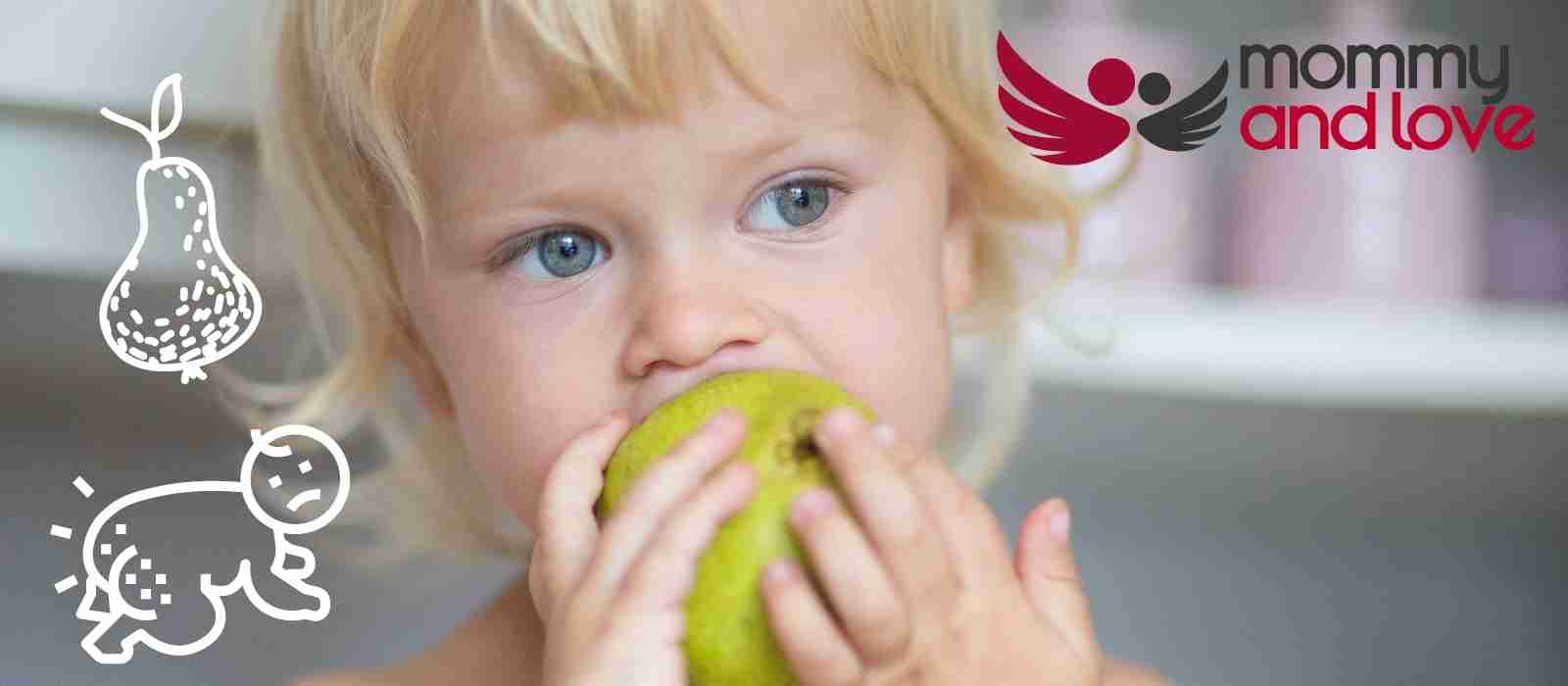Pears are high on the list of foods that can induce a diaper rash. Pear juice, in particular, is known to cause severe irritation and inflammation in a baby’s delicate bottom skin. This unpleasant condition will be worse if a baby has an allergy to pears.
Are pears good for babies?
Yes. Pears are high in vitamins and minerals such as copper (which assists iron absorption), vitamin C and other antioxidants (which support a healthy immune system), and vitamin K. (which promotes healthy blood). Pears are well-known for their high fiber content, the majority of which is found in the skin.
The skin color of a pear reveals the variety’s distinct plant chemicals and, as a result, various useful nutrients to the human body. Red-skinned pears, for example, contain beta-carotene, which is necessary for good vision, skin, and immune function.
When are babies allowed to eat pears?
You can introduce pear to your baby’s diet as soon as she is ready to eat solid foods. This usually happens at around 6 months.
Note that raw pear is slippery and firm which makes it a choking hazard. Additionally, if your baby’s digestive system is not ready for acidic foods, she might develop a diaper rash and another unpleasant event. Keep in mind that certain foods can lead to an allergic reaction especially for babies prone to food allergies and have perpetual diaper rash.
How to introduce pear to your baby?
Pears are one of the first fruits that newborns should be introduced to. They’re tasty and high in fiber, which helps keep things moving in the digestive tract. It’s also quite simple to incorporate into your baby’s food diet at home.
Making a pear puree is one of the simplest and most common ways to offer pears to your little one. Once you’ve determined that your baby isn’t allergic to pears, this homemade pear puree is a simple baby food recipe that’s ideal for newborns and toddlers. It just has two ingredients: pears and water.
There are two methods for making baby food pears. Cooking the pears first is advised for younger children with delicate stomachs. For older children who still enjoy purees, simply blend fresh pears with water, no cooking is necessary.
Are pears acidic?
Pears have high acidity. Pears’ pH can change depending on genetic and environmental variables. Pears can have pH levels ranging from 3.6 to 4.0.
It is not a terribly acidic fruit compared to other more acidic citrus fruits. But it should be served in moderation especially if your baby does not respond well to citrus fruits (includes foods that are inherently acidic). Avoid it completely along with other foods like pineapple if your baby develops a rash.
Do pears cause bad diaper rashes?
While very uncommon, pears can cause diaper rash. Even in small servings, a triggers diaper rash. It has high acid content, which might cause red rashes to appear on your baby’s bottom. It also contains both artificial and natural sugars, which might be another cause of diaper rash in your baby.
Most toddlers love fruit but certain foods tend to cause a reaction to a baby or toddler especially if these are new foods in their diet. Signs and symptoms of a reaction include diarrhea, loose stools, serious pain, inflamed skin and diaper rash.
Additional information
- If your baby develops a diaper rash after eating a pear, consider removing the fruit from her diet.
- Foods to avoid are acidic in nature. Start giving her starchy foods which helps calm down the diaper rash.
- It also helps if you apply a cream or ointment at every diaper change.
- Diaper rash typically manifests as red patches on the skin, as well as bigger reddened regions of skin around the diaper area or in the creases of your baby’s upper thighs.
- If your baby develops a diaper rash to pear, you should also avoid giving your baby other foods like pineapple, oranges, lime and apples.
- Changes to the diet of your baby can lead to changes in her body. For example, a food that is acidic like pear, can cause changes in her stools pH balance. If the bottom of your little one comes in contact with her acidic stool, this can cause a diaper rash as well.
- Keep a food journal to monitor if a food is causing a rash.
Conclusion
Did you know pears can cause diaper rash in babies?
Several studies have found that children with food allergies to certain foods, such as pears, may develop a diaper rash after eating them. The acidity and sugar content of pears may cause a reaction that can manifest in a form of a diaper rash.
So if your baby suffers from a bad case of diaper rash you might want to cut out this fruit from your baby’s diet until her digestive system is mature enough.
Contact your doctor or a medical professional if your little one is suffering from any of these symptoms:
- diarrhea
- serious pain
- diaper rash that does not go away after 3 days
- diaper rash that spreads beyond the diaper region




